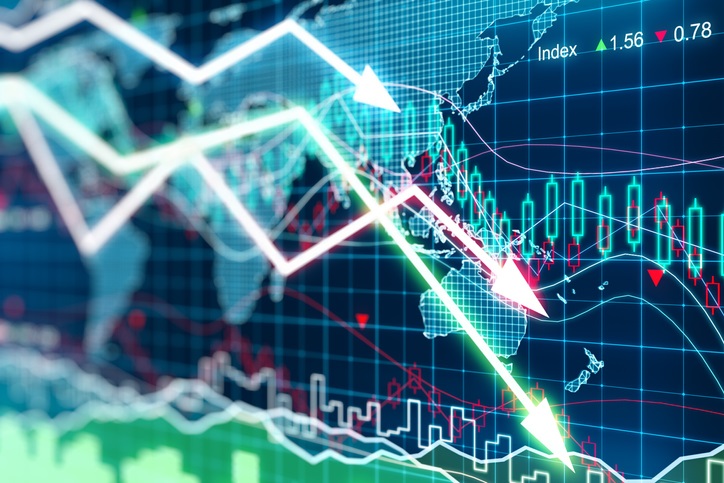Why world’s biggest fund manager isn’t buying the dip
15th June 2022 09:31
by Sam Benstead from interactive investor
BlackRock still thinks stocks have further to fall as profit margins come under pressure and interest rates keep rising.

BlackRock, the world’s largest fund manager with more than $10 trillion (£8 trillion) in assets under management, is still not positive on the stock market despite the intense sell-off this year.
Its BlackRock Investment Institute research team said it was passing on “buying the dip” because valuations had not improved, the US central bank could hike interest rates too aggressively, and corporate profit margins were coming under pressure.
It said: “American stocks have suffered the biggest year-to-date losses since at least the 1960s. That’s ignited calls to ‘buy the dip’.
“But we pass, for now. Valuations aren’t much cheaper given rising interest rates and a weaker earnings outlook. A higher path of policy rates justifies lower equity prices.
“We also see a risk the Federal Reserve will lift rates too high – or that markets believe it will. Plus, margin pressures are a risk to earnings. That’s why we’re neutral on stocks on a six- to 12-month horizon.”
- A tactic to ride out the inflation storm using these funds and trusts
- The US funds beating the S&P 500 over the short and long term
- US stocks enter bear market, but there’s a silver lining for funds
BlackRock argues that profit margins are set to come under pressure given rising energy and labour costs – but earnings forecasts do not factor this in.
Its analysts said the market expected the S&P 500 to increase profits by 10.5% this year – but that figure was far too optimistic.
BlackRock said: “Falling costs like labour have fed the multi-decade profit expansion. So far, unit labour costs – the wages a company pays to produce a unit of output relative to its selling price –haven't risen much.
“We see real, or inflation-adjusted, wage hikes to entice people back to work. That’s good for the economy – but bad for company margins. Stocks could slide further if margin pressures increase,” it said.
On top of that it, it said that stocks were not actually cheaper, despite falling share prices. This is because the risk-free rate on offer from government bonds has risen as interest rates have gone up.
“Valuations haven’t really improved after accounting for a lower earnings outlook and a faster expected pace of rate rises. The prospect of even higher rates is increasing the expected discount rate. Higher discount rates make future cash flows less attractive,” BlackRock said.
Another investor that still thinks the market has further to fall is Ruffer, the firm behind the defensive Ruffer Investment Company.
It said that even though the Nasdaq index (a proxy for US technology shares) is down 29% from November 2021, it was not convinced that value had yet emerged.
- Five tips to cope in a bear market
- A tactic to ride out the inflation storm using these funds and trusts
- Recessions are becoming more likely – here’s how to invest
Ruffer said: “We have only nibbled on equities, more in the pursuit of portfolio balance, than it is bullishness, adding to Japan, Meta (NASDAQ:META) and US housebuilders.
“The bear market is only beginning to grizzle, the FTSE All-World is down only 6% this year. Given the cross-currents in markets and the economy, the short term is foggy. We must not lose sight of the long-term inflationary dynamics that continue to build and risk eviscerating savers.”
More broadly, investors polled by Bank of America were also worried about the outlook for stocks and the economy.
It found that fund manager sentiment was “dire”, with global growth optimism at an all-time low and fears of stagflation (high inflation and low growth) at their greatest level since June 2008.
The S&P 500 has fallen 22% since its peak in early January, or around 11% in sterling due to a weaker pound. However, the UK market, which is cheaper and has a higher dividend yield, has fallen just 6.5% from its highs.
These articles are provided for information purposes only. Occasionally, an opinion about whether to buy or sell a specific investment may be provided by third parties. The content is not intended to be a personal recommendation to buy or sell any financial instrument or product, or to adopt any investment strategy as it is not provided based on an assessment of your investing knowledge and experience, your financial situation or your investment objectives. The value of your investments, and the income derived from them, may go down as well as up. You may not get back all the money that you invest. The investments referred to in this article may not be suitable for all investors, and if in doubt, an investor should seek advice from a qualified investment adviser.
Full performance can be found on the company or index summary page on the interactive investor website. Simply click on the company's or index name highlighted in the article.